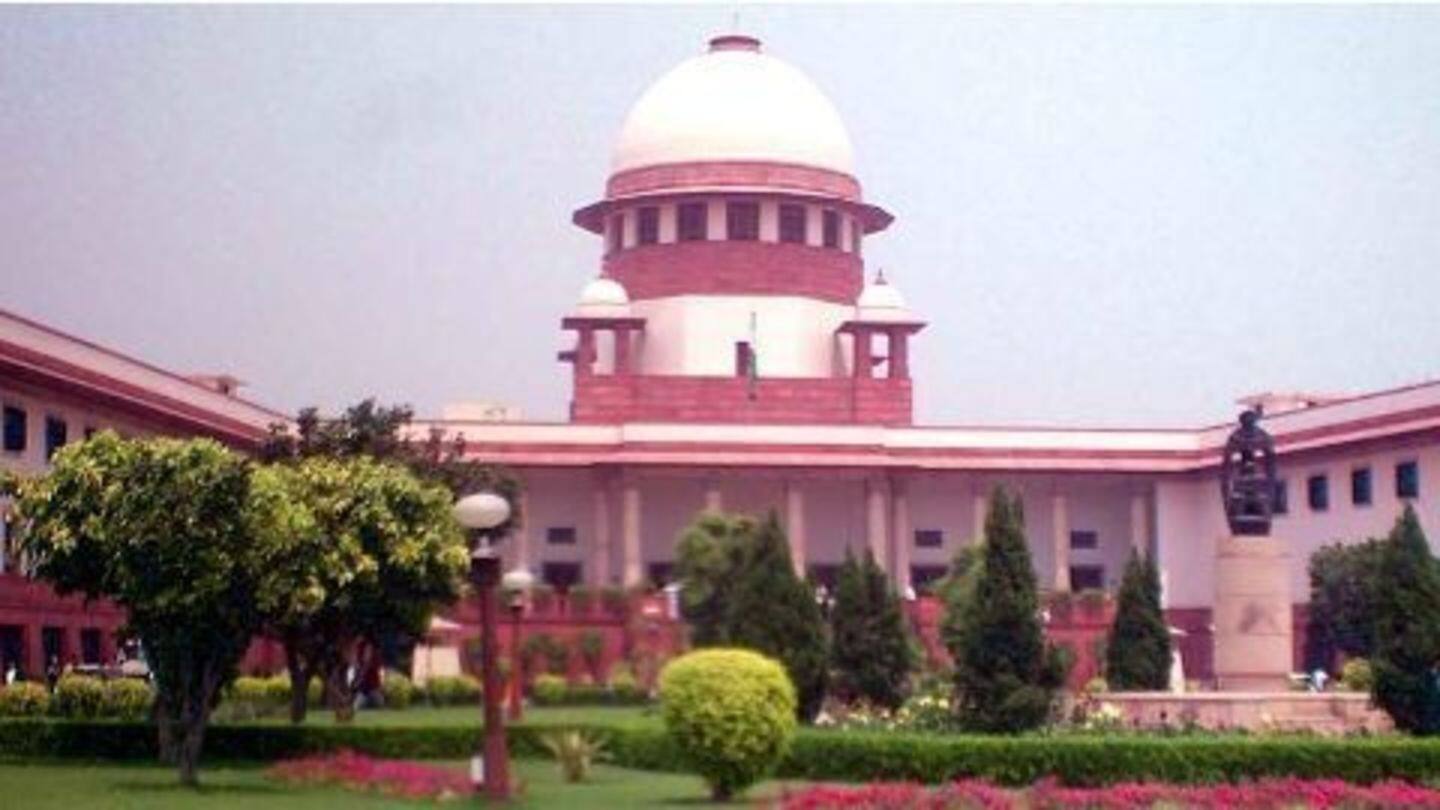
Think of harsher punishment for child rape accused: SC
What's the story
The Apex court has directed the Parliament to think of formulating laws that provide for harsher punishment for rape and abuse of minors.
A bench headed by Justice Deepak Mishra made this observation while hearing a petition filed by Supreme Court Women Lawyer's Association which sought castration for child rape convicts.
Attorney-General, Mukul Rohatgi, however, submitted that the law-making power wasn't in court's jurisdiction.
Introduction
India has highest number of child abused
A study by the Ministry of Women and Child Development had inter-alia observed that every second child faced one or other form of sexual abuse.
1 in 5 reported severe form of sexual abuse.
In more than half of the cases, the abusers were known to the child.
Street children, child labourers, and children in institutional care reported the highest number of sexual-assault cases.
Information
Huge child population without political representation
India has the largest child population with 42% of the population below the age of 18 years.
Pre-2012
Laws dealing with child abuse - before 2012
Before 2012, the Indian Penal Code under various provisions such as Section 354 (Rape), 375(Outraging Modesty of Women), 377(Unnatural Offense), etc dealt against sexual offenses.
However, the laws had various shortcomings such as they were not specific to children's needs, had no provisions for repeat offenders, variation in child's age in every law, etc.
Hence, a need was felt for a 'minor specific' law.
14 Aug 2012
Laws dealing with child abuse post 2012 - POSCO
Protection of Children from Sexual Offences Act, has more specific and stringent provisions.
The act not only defines every person below the age of 18 as child but also defines different forms of sexual abuse.
It also provides for compulsory reporting of child offense, graded punishment with a maximum term of life imprisonment with fine, special courts for compensation, protecting identity of child, etc.
16 Oct 2015
Issues with the current legislative regime
According to the National Commission for Protection of Rights of Child, in 2014, less than 10 of the cases registered under POCSO made it to the courts.
Although POCSO provides for a speedy trial, the special courts are over-burdened with other cases.
With a conviction rate of less than 2.5%, the courts are also deemed 'child unfriendly' as the child identity is often disclosed.